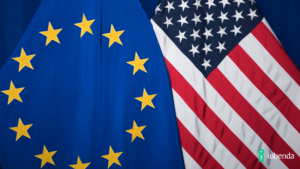In a potentially game-changing development, Philippe Latombe, a French Member of the European Parliament, has lodged formal objections against the EU-U.S. Data Privacy Framework (DPF) at the European Union General Court.
This follows the European Parliament’s disapproval of the agreement earlier this year. Latombe aims to halt the DPF immediately and calls into question its formal legitimacy, potentially reigniting a long-running legal tussle between safeguards afforded under EU data protection rights and their US counterparts.

Historical Context
In july 2020, the EU’s highest court, the Court of Justice of the European Union (CJEU), voided the previous data transfer arrangement known as Privacy Shield, citing surveillance concerns from U.S. intelligence agencies. A subsequent agreement, the EU-U.S. Data Privacy Framework, was green lit by both EU and U.S. officials in July 2023, aimed at providing companies a legal pathway for transatlantic data transfers and ending years of legal ambiguity.
Key Legal Arguments
Philippe Latombe, affiliated with President Macron’s partner party Modem, argues that the new framework violates the EU Charter of Fundamental Rights. He raises concerns about “lacking assurances for the protection of privacy and family life concerning mass data collection” and notes its non-compliance with the General Data Protection Regulation (GDPR).
Latombe is leveraging a dual strategy for his legal objections:
- Immediate Invalidation: The first objection seeks to put an immediate hold on the DPF.
- Textual and Procedural Flaws: The second centers around the framework’s textual shortcomings, including its availability solely in English and its absence from the EU’s Official Journal.
Latombe has kept both the French government and CNIL, the country’s data protection authority, informed about his legal moves.
Update on EU-U.S. Data Privacy Dispute
Latombe has recently filed an appeal against the decision of the EU General Court regarding data protection. In his argument, Latombe highlights significant concerns about the independence and effectiveness of the U.S. Data Protection Review Court. Key points of his appeal include:
-
Questioning Independence: Latombe asserts that the U.S. Data Protection Review Court lacks genuine independence, as it was established by a presidential executive order rather than through an act of Congress.
-
Automated Decision-Making Safeguards: He also raises concerns about the absence of comprehensive safeguards in U.S. law against automated decision-making processes, suggesting a potential for bias and lack of transparency.
This appeal represents a crucial development in the ongoing discourse about data privacy and protection standards between the European Union and the United States. The outcome of this case could have significant implications for the future of international data transfers and privacy regulations.
What’s at Stake?
Corporate Impact
If Latombe’s objections are upheld, corporations on either side of the Atlantic may find themselves navigating a legal maze, devoid of any stable framework for transatlantic data flows.
Diplomatic Relations
The objections could further complicate the already delicate relationship between the EU and the U.S., especially given that the DPF was supposed to resolve prior uncertainties.
Data Privacy Future
The case could serve as a catalyst for renewed debates over data privacy standards, possibly leading to more stringent regulations in the coming years.
Regardless of the outcome, this unfolding drama highlights the challenges inherent in creating international accords that need to marry business needs with human rights protections. It remains to be seen whether the DPF can endure the renewed scrutiny it now faces.
